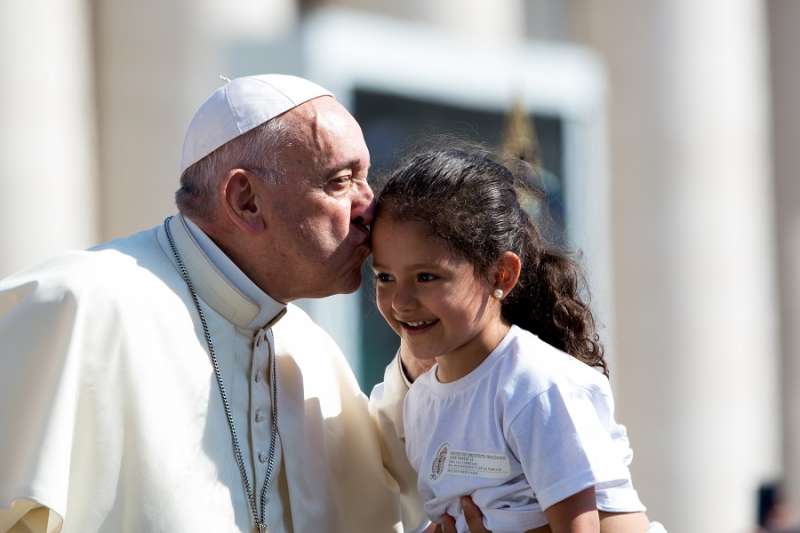On Wednesday Pope Francis said the ten commandments are not heartless rules imposed on mankind by an oppressive God, but are rather words given by a father to his children in order to protect them from harm.
“Man is in front of this crossroads: does God impose things on me, or take care of me? Are his commandments only a law, or do they contain a word? Is God a master or a father? Are we slaves, or children?” the pope said June 20.
This is a “battle” which takes place both inside and outside of the person, and “is continually present: a thousand times we must choose between a slave mentality and a mentality of children,” he said, adding that the Holy Spirit is a spirit “of sons, it is the Spirit of Jesus.”
“A spirit of slaves can only welcome the law in an oppressive way, and it can produce two opposite results: either a life of duties and obligations, or a violent reaction of rejection.”
The whole of Christianity, he said, is the passage “from the letter of the law to the Spirit who gives life. Jesus is the word of the Father, he is not the condemnation of the Father.”
Pope Francis spoke to pilgrims present in St. Peter's Square for his weekly general audience, during which he continued a new series of catechesis on the Ten Commandments.
In his address, the pope noted how at the beginning of Chapter 20 of the biblical book of Exodus, in reference to the commandments, verse one reads “God spoke these words to all.”
The phrase might seem simple, but “nothing in the bible is banal,” Francis said, noting that the passage uses the term “word,” rather than “command.”
In Jewish tradition, the commandments, also called the “Decalogue,” are referred to as “the ten words,” he said, explaining that while they are also laws, the term “decalogue” in itself is meant to connote the term “word.”
Asking what the difference between “word” and “commandment” is, Pope Francis said a command is a something which “does not require dialogue,” while word, on the other hand, “is the essential means of relationship through dialogue.”
“God the Father creates through his word, and the son is the Word made flesh. Love nourishes the word, as does education and collaboration,” he said, noting that two people who do not love each other will not be able to communicate. However, “when someone speaks to our heart, our solitude ends.”
Another difference, he said, is that a command is to receive an order, rather than having a dialogue or a conversation.
Dialogue, the pope said, “is much more than the communication of truth,” but is realized in the pleasure “of speaking and of the concrete good, which is communicated between those who love each other through words.”
The devil, Francis said, wanted to trick Adam and Eve by convincing them that God had “forbidden” them to eat the fruit from the tree of knowledge in order to keep “submissive.”
However, the challenge with God's first “command” to them, he said, is to determine whether God this norm was meant to impose, or whether it was intended to protect “from self-destruction.”
“The most tragic, among the various lies the serpent tells Eve, is the suggestion of an envious and possessive deity,” Francis said, explaining that “the facts show the serpent lied.”
Pope Francis closed his audience saying it is obvious when people live as if they were children versus slaves, because people can recognize the logic. “The world does not need legalism, but care,” he said, “it needs Christians with the heart of children.”

